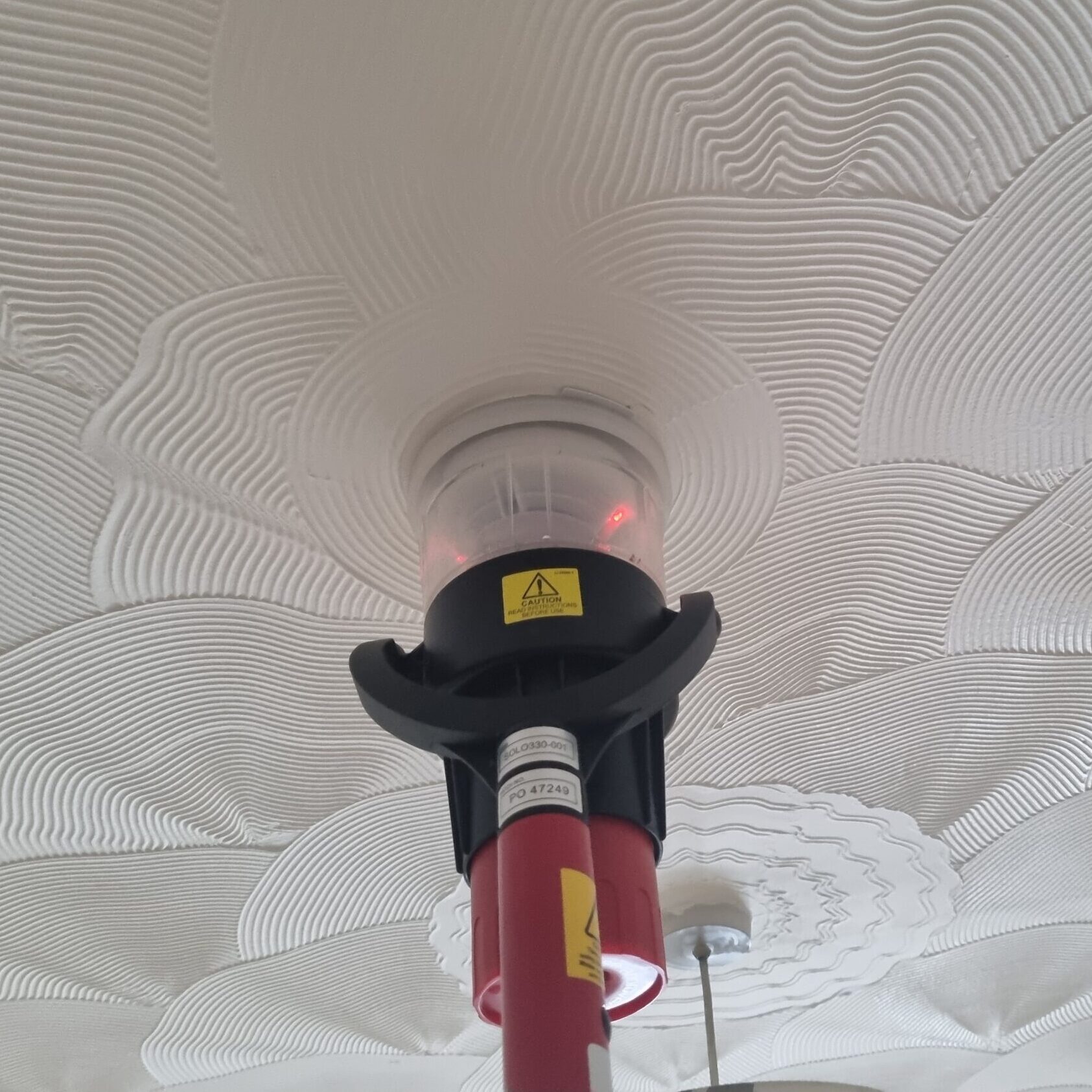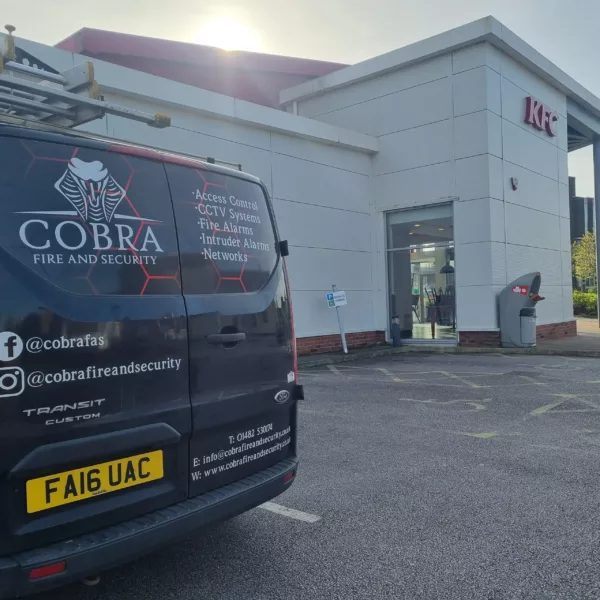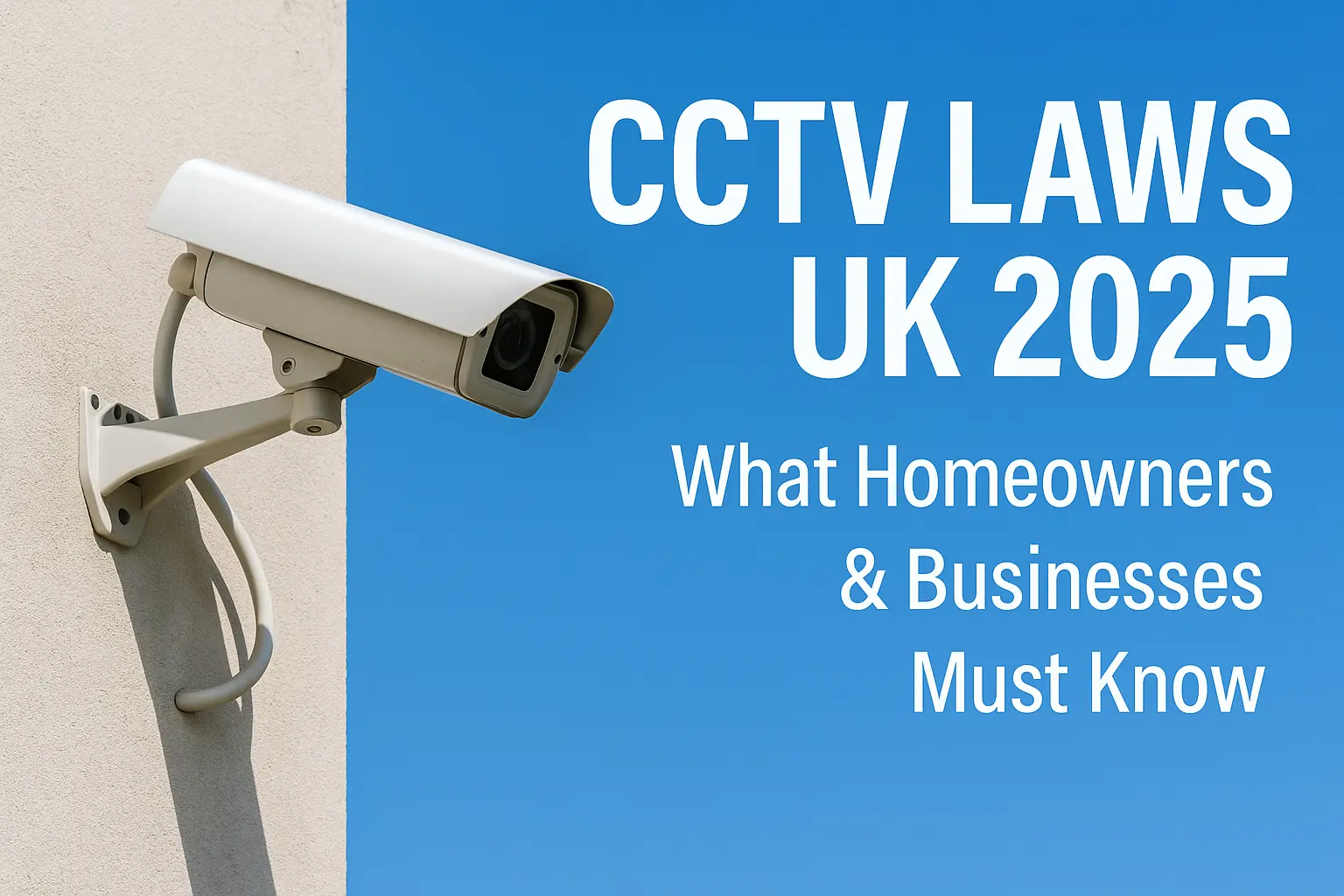
Comparing Smoke and Heat Detectors for UK Homes & Businesses
When it comes to protecting lives and property, fire detection plays a vital role. But should you use a smoke detector, a heat detector, or both? In this guide, Cobra Fire & Security explains how each type works, the pros and cons, and how UK fire safety standards apply.
What Is a Smoke Detector?
Smoke detectors identify smoke particles in the air, providing an early warning before flames spread.
Types of smoke detectors:
-
Optical (photoelectric): Detects visible smoke, effective for slow, smouldering fires.
-
Ionisation: Detects smaller, invisible particles, often faster with flaming fires.
Best locations: bedrooms, living rooms, hallways, and offices.
Pros:
-
Early fire warning = more escape time.
-
Cost-effective and widely available.
Cons:
-
Can trigger false alarms in kitchens or bathrooms due to steam or dust.
What Is a Heat Detector?
Heat detectors sense a rise in temperature rather than smoke.
Types of heat detectors:
-
Fixed Temperature: Activates at a set level (e.g. 57°C).
-
Rate-of-Rise: Activates when temperature increases quickly.
Best locations: kitchens, garages, workshops, boiler rooms.
Pros:
-
Resistant to false alarms from steam or dust.
-
Reliable where smoke detectors aren’t suitable.
Cons:
-
Respond more slowly than smoke detectors.
-
Less effective for smouldering fires with little heat.
Smoke Detectors vs Heat Detectors: Comparison Table
| Feature | Smoke Detector | Heat Detector |
|---|---|---|
| Best for | Bedrooms, living rooms, hallways | Kitchens, garages, dusty areas |
| How it works | Detects smoke/particles in the air | Detects rapid temperature rise or fixed heat |
| Response time | Fast, especially for smouldering fires | Slower, better for fast-flame fires |
| False alarms | Can trigger from cooking or steam | Rare, more stable |
| Cost | Usually lower | Slightly higher |
UK Fire Safety Regulations
In the UK, fire detection is covered by BS 5839 standards:
-
BS 5839-6:2019 – Domestic homes, flats, HMOs.
-
BS 5839-1:2025 – Non-domestic buildings such as offices, schools, and factories.
Key takeaways:
-
Smoke detectors are required in living rooms, bedrooms, and escape routes.
-
Heat detectors are usually installed in kitchens, garages, or areas prone to dust.
-
HMOs often need a mix of both to remain compliant.
👉 See our Fire Alarm Installation page for full details.
Which Detector Should You Choose?
The best option depends on your property and fire risk assessment:
-
Homes: Smoke detectors in bedrooms and living spaces, heat detectors in kitchens.
-
HMOs: Usually require both types, linked together.
-
Businesses: Chosen based on risk, e.g. warehouses may need heat detectors, offices smoke detectors.
At Cobra Fire & Security, we design systems that match the environment, ensuring compliance with UK safety standards.
Other Types of Automatic Fire Detectors
While smoke and heat detectors are the most common, modern systems also use other types of detection:
-
Multi-sensor detectors – combine smoke and heat detection in one unit, reducing false alarms and improving accuracy.
-
Flame detectors – detect infrared or ultraviolet light emitted by flames, used in high-risk industrial environments.
-
Aspirating (air sampling) detectors – draw in air and test it for smoke particles, offering ultra-early detection in data centres or clean rooms.
-
Carbon monoxide (CO) fire detectors – sense carbon monoxide from fires, sometimes used in combination devices.
👉 These advanced detectors are usually specified in higher-risk environments or as part of a BS 5839-compliant fire alarm system.
FAQs About Smoke and Heat Detectors
Can I use both smoke and heat detectors in the same property?
Yes — this is common practice and ensures full coverage.
Where should heat detectors not be installed?
Avoid bedrooms and hallways as they respond too slowly.
Are combination smoke/heat detectors worth it?
Yes, they reduce false alarms and are flexible in mixed environments.
Do heat detectors alone meet UK regulations?
No — they must be used alongside smoke detectors in most properties.
Protect Your Property with Cobra Fire & Security
Choosing the right fire detector is only part of the solution. A properly designed system should be tailored to your property and installed by accredited professionals.
✅ SSAIB-accredited
✅ BS 5839-compliant
✅ Serving Hull, Beverley, York, Leeds & East Yorkshire
Contact us today to book a survey and make sure your fire detection is up to standard.
Reviewed: 28/09/2025 Our articles are reviewed regularly. However, any changes made to standards or legislation following the review date will not have been considered. Please note that we provide abridged, easy-to-understand guidance. To make detailed decisions about your fire safety provisions, you might require further advice or need to consult the full standards and legislation.
Share this article
Written by : Michael Winter
Follow us
A quick overview of the topics covered in this article.
- Comparing Smoke and Heat Detectors for UK Homes & Businesses
- What Is a Smoke Detector?
- What Is a Heat Detector?
- Smoke Detectors vs Heat Detectors: Comparison Table
- UK Fire Safety Regulations
- Which Detector Should You Choose?
- Other Types of Automatic Fire Detectors
- FAQs About Smoke and Heat Detectors
- Protect Your Property with Cobra Fire & Security
Latest articles
February 26, 2026
February 26, 2026
February 26, 2026





